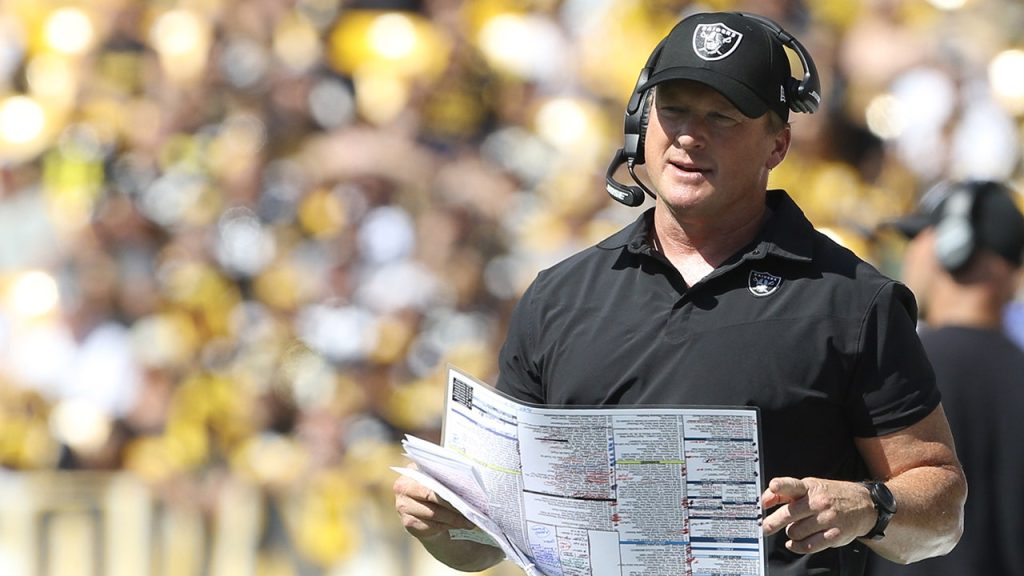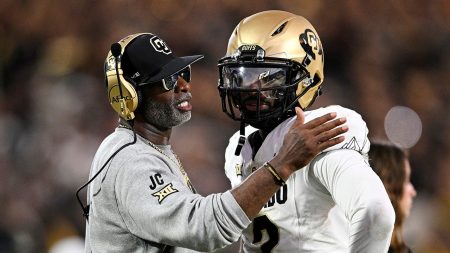Jon Gruden, the former NFL head coach, has recently voiced his strong disapproval of the current state of college sports, particularly focusing on the perceived erosion of coach-athlete relationships due to the advent of the transfer portal and Name, Image, and Likeness (NIL) deals. Gruden argues that these new dynamics create a transient environment where athletes prioritize personal gain over team commitment and the development of meaningful bonds with their coaches. He uses the analogy of “rental clubs” in golf, suggesting that athletes treat their college teams as temporary stints, lacking the familiarity and dedication required to truly excel. This constant turnover, according to Gruden, hinders the learning process and prevents the establishment of the deep, formative relationships that were once a hallmark of college sports.
Gruden’s critique aligns with the concerns expressed by other prominent figures in college sports. Legendary Duke basketball coach Mike Krzyzewski, while acknowledging the potential benefits of NIL, admitted his struggle to navigate the changing landscape. Similarly, former Alabama football coach Nick Saban has been a vocal critic of NIL, arguing that it disrupts the competitive balance and creates an uneven playing field. These criticisms highlight the growing apprehension among some coaches who believe that the focus on individual financial opportunities is undermining the traditional values of collegiate athletics.
The transfer portal, a relatively new NCAA regulation that allows athletes to switch schools without penalty after a certain period, has become a central point of contention. Prior to its implementation, transferring often involved sitting out a season, which encouraged athletes to consider their decisions carefully and fostered a greater sense of commitment to their chosen programs. The portal has undoubtedly provided athletes with more autonomy and flexibility, allowing them to pursue better opportunities or escape unfavorable situations. However, critics like Gruden argue that it also contributes to a culture of instability and diminishes the importance of loyalty and team cohesion. Athletes, they contend, are more likely to transfer if they encounter challenges, face coaching changes, or receive more lucrative NIL offers from other schools.
The introduction of NIL deals has further complicated the college sports landscape. While proponents argue that it empowers athletes to capitalize on their talent and marketability, critics like Gruden express concern that it creates a transactional environment where financial considerations outweigh the intrinsic value of the sport. NIL has undoubtedly introduced a new level of professionalism into college athletics, with athletes now able to secure endorsements, sponsorships, and other business ventures. This shift, however, has sparked debate about the potential for exploitation, unfair competitive advantages, and the blurring of lines between amateurism and professionalism. Questions remain about the long-term impact of NIL on the integrity of college sports and the overall student-athlete experience.
Gruden’s “rental clubs” analogy encapsulates the sentiment that athletes are less invested in their teams and more focused on their individual trajectories. This perspective suggests a decline in the traditional values of collegiate athletics, where athletes were expected to prioritize team success and personal development under the guidance of their coaches. The emphasis on the transfer portal and NIL deals, according to this view, fosters a mercenary approach where athletes treat their college careers as stepping stones to professional opportunities rather than formative experiences. This shift in mentality, some argue, undermines the very essence of college sports, transforming it from a primarily educational and developmental endeavor into a more business-oriented and transactional pursuit.
The debate surrounding the transfer portal and NIL deals reflects a broader tension between the amateur ideals of college sports and the increasing influence of commercial interests. As college athletics becomes more intertwined with professional sports, questions arise about the future of amateurism and the role of universities in regulating and managing these evolving dynamics. The ongoing discourse suggests a need for thoughtful consideration and potential adjustments to ensure that the benefits of these changes are maximized while mitigating potential negative consequences. Striking a balance between athlete empowerment and the preservation of the core values of college sports remains a significant challenge for administrators, coaches, and athletes alike.










